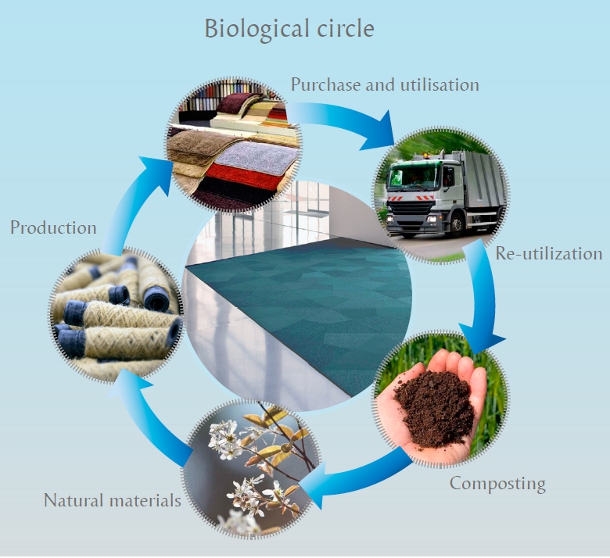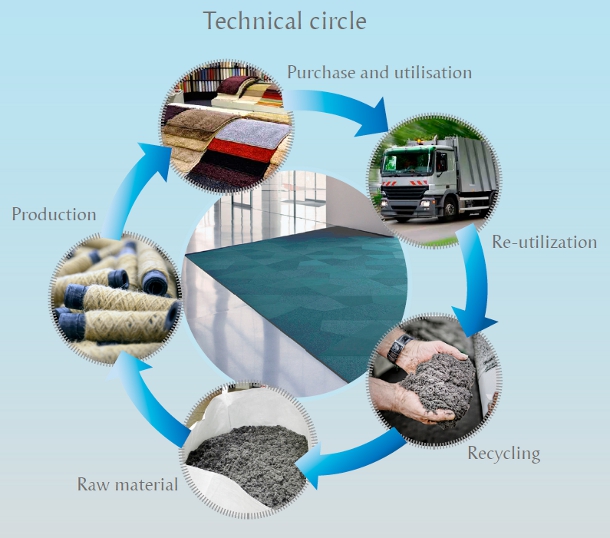As well as technological efficiency, our comprehensive quality strategy is also part of our sustainability plan. That means that we take the situation as a whole into account when we make any decision. We don’t focus solely on business success; instead we also consider environmental protection, societal well-being and satisfied guests and partners. For example, when we buy products, we make sure that they can be recycled and fed back into biological or technological processes. As in nature, as many products as possible that are used in one process should be recycled in another. This reduces generation of actual waste to a minimum.
In the long-term, we want to gradually evaluate all products used by AIDA, including furniture, work wear and food products, to see if they can be recycled in biological and technological closed-loop processes. If needs be, adjustments will be made or they will be replaced. For example: From 2013, the carpets will be gradually changed in the crew cabins of our ships. The new carpet flooring will meet our requirements for sustainable products from closed-loop recycling processes. It will be made of environmentally friendly and recyclable materials. In addition, the carpet flooring is non-hazardous to health throughout its life-cycle, from fabrication to recycling. That means that it contains no components or substances that could emit hazardous materials, such as irritants, during its manufacture or use.
Cradle-to-cradle-principle: example carpet tile


Another example of the principle of comprehensive quality is our joining of the “CEOs pro Recyclingpapier” (CEOs for recycling paper) initiative. In 2012, in addition to the Pro Recyclingpapier initiative, we responded to calls from the Federal Ministry for the Environment, the German Nature and Biodiversity Conservation Union (Naturschutzbund Deutschland) and the German Association of the Club of Rome. In doing so, we committed to using only recycled paper with the blue angel emblem for our paper and printing needs. All paper and printing materials ordered from 2013 will be correspondingly certified.
Picture carpets: steschum/Fotolia.com; Picture soil: M. Schuppich/Fotolia.com; Picture garbage truck: Ssogras/Fotolia.com
all other Picture: Desso







